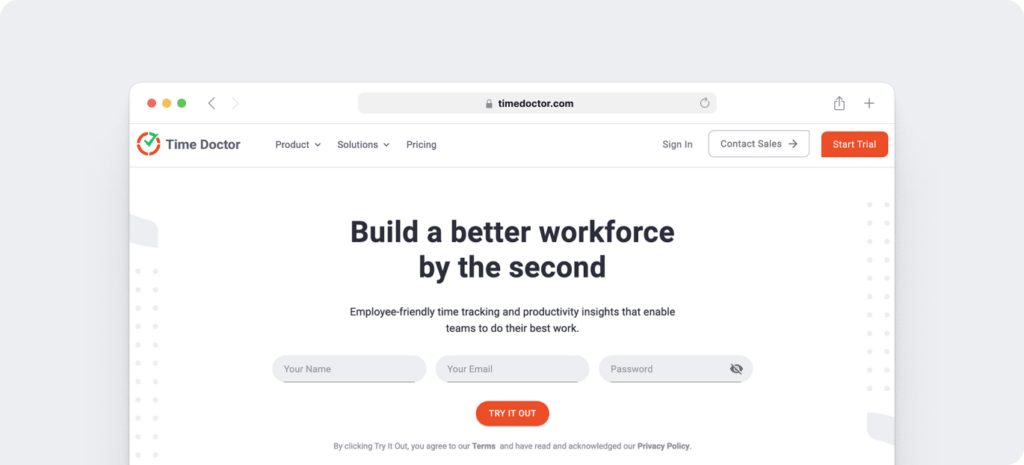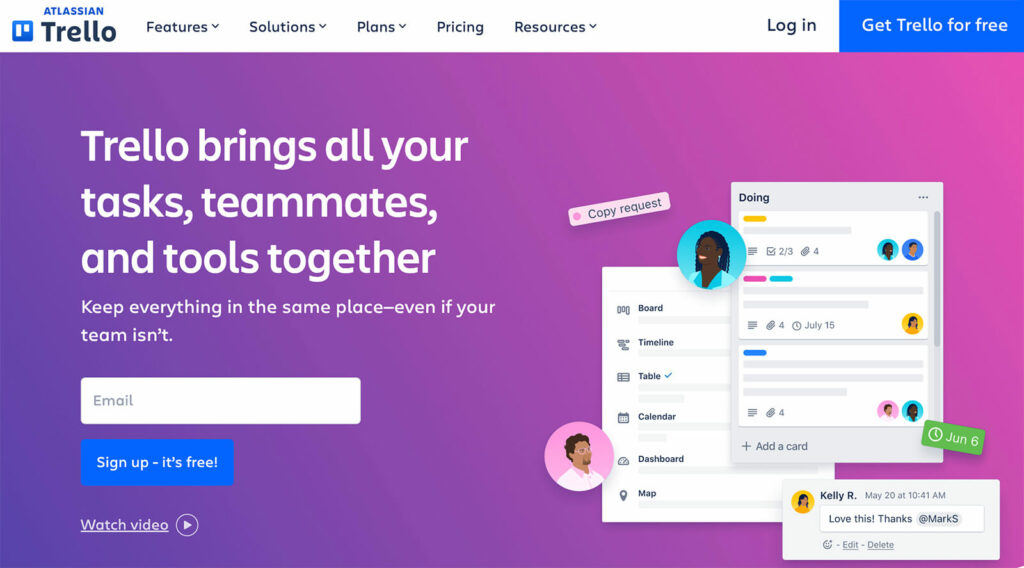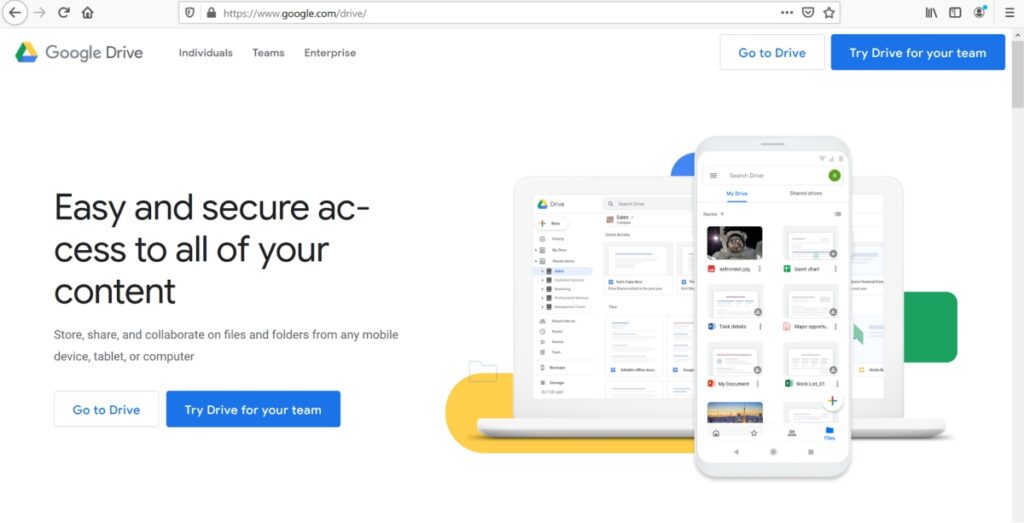Curious about time management for freelancers?
As a freelancer, you can be your own boss — free to work on your own terms and conditions.
However, since you choose your work hours, it’s easy to get distracted by social media sites like Twitter or Facebook, emails, personal errands, and more. And before you know it, you’ll be left with no time to complete the tasks at hand.
But don’t worry. We’ll help you out here.
In this article, we’ll discuss the time management strategies and tools you should use to make the most of your time. Additionally, we’ll also look at the benefits of time management for freelancers.
This Article Contains:
(click on links to jump to a particular section of the page)
- How Can Freelancers Manage Their Time Better?
- What Are The Benefits Of Time Management For Freelancers?
Let’s get started.
How can Freelancers Manage Their Time Better?
Time management helps you coordinate tasks and activities to maximize your effectiveness.
It’s an essential skill to help you get more (and better) work done in less time.
Let’s look at some time management tips to help you do just that:
1. Stick to a Schedule
Professionals in the freelance business often have a flexible schedule.
While you can take full advantage of that flexibility, you should not use it as an excuse for procrastination. The best way to avoid running into this problem is to set a schedule and stick to it.
A fixed clock-in and clock out routine can psych you for work. This way, your work won’t consume your entire day.
To stay productive, it’s crucial that you:
- Determine your peak productivity hours and create your schedule around it.
- Create practical and achievable daily tasks and to-do lists.
- Structure your daily schedule around your targets and objectives.
When you create a schedule and stick to it, it becomes easier to tell your clients when you’ll be available for big projects.
2. Learn to Say No
Many freelancers, especially novices, say yes to multiple projects simultaneously.
But why?
When there’s no regular salary security, there’s a temptation to take up every piece of work offered.
Taking on too much work is also explained by ‘the planning fallacy.’
This fallacy is the tendency to underestimate the time needed to complete an assignment. You essentially ‘think’ that you’ll achieve more tasks than you could actually do.
If you take on too many projects, you’ll be overwhelmed by deadlines and find it hard to deliver on time.
You may disappoint clients if you fail to deliver your services and, consequently, hurt your business.
So what can you do?
Don’t set yourself up for exhaustion by cramming your workdays.
A good time management tip is to limit the number of different projects you take on at once.
If you want to take up newer projects that seem interesting, ask the client for an extended deadline.
Know when to say no to new projects and keep your workload in check to deliver quality work.
3. Organize Your Day
As a freelancer, you’ll have many project discussions with clients.
It’s easy to get lost in these conversations and not get any actual work done.
The solution?
You should only work on important tasks and projects when your energy levels are high.
You can reserve all project meetings and other non-billable work for the end of the day when your energy levels are low.
Time management is about managing your energy in a way that you get the most out of your workday.
So, figure out your time management style and use these management skills to get more work done.
4. Keep Distractions at Bay
You may experience many disturbances throughout the day, such as:
- Interruptions from friends or family members.
- Notifications from social media sites.
- Domestic chores and errands.
- Text messages or phone calls, etc.
You should learn how to eliminate distractions that are getting in the way of your work.
Some things that you can practice include:
- Set up your workspace in the quietest corner of the house.
- Practice mindfulness to focus better.
- Mute all phone notifications, messages, and calls, and get in deep work mode.
- Play white noise to tune out surrounding noise and improve focus.
- Use productivity tools like Time Doctor to keep a tab on your social media usage during work hours.

5. Take Frequent Breaks
Continually working for an extended period of time can lead to physical and mental exhaustion. It may also slow you down and cause resentment towards work.
The solution?
Take frequent breaks to re-energize yourself so that you can focus better.
One time management technique that you can practice is the Pomodoro technique.
What’s the Pomodoro technique?
The Pomodoro time management technique tells you to take a 5 minute break after a focused working session of about 25 minutes.
After four such sessions, you can take an extended break of 10-25 minutes.
The technique helps you stay focused on work and avoid the possibility of burnout.
6. Change Your Work Environment
Your work environment also influences your mindset to work.
How?
If you work from your bed or couch, you might find it harder to concentrate since these are areas dedicated to relaxation.
You should set up a separate space for work, which can act as a home office.
Choose a particular desk or a customized study room in your house to complete your freelance work. You should also clear non-work related items from this workspace to prevent any distractions.
Assigning a separate space for work is also a great idea to ensure that you leave work behind when the workday ends.
7. Don’t Multitask
Whether you run a digital marketing agency or create websites, don’t pride yourself on juggling too many tasks at once.
Why?
When you try to do too many things simultaneously, your mind is never really focused on any one task.
Due to the lack of concentration, you make more mistakes, decrease your overall productivity, and waste time.
How can you avoid this?
Focus on doing one task at a time and do it well. To make single-tasking more effective, try timeboxing your tasks.
Timeboxing is a time management technique where you block time for a particular task and set up a time frame to complete it.
Timeboxing will help you:
- Reserve time for all your essential tasks.
- Get complete control over your schedule and priorities.
- Proactively decide how much time you want to spend on a task and when.
8. Use The Right Tools
While all these tips can help you get started with time management, you’ll find it challenging to continue with these practices without the proper tools.
There are hundreds of software available to help freelancers manage their workload and be more productive.
However, there are three types of indispensable tools for superior workflow management.
Let’s take a look at them:
A. Time Tracking Software
Time tracking is an essential, but often overlooked, part of time management.
The key to effective time management is knowing where you spend time. By tracking and collecting workday data, you get access to the information you need to make strategic improvements.
A time tracking tool can help you:
- Know the amount of time you take for specific projects and plan smarter in the future.
- Gauge your output every day and take proactive decisions to optimize it.
- See if you’re spending enough time on billable hours to stay profitable.
- Know your active working hours to bill clients appropriately.
Today, there are several tools available that can help you track time and spur your productivity.
However, some stand out for providing an excellent user experience, advanced time tracking functionality, high data security features, and affordable pricing.
Time Doctor is one such tracking app used by freelancers, small businesses and large corporations.

The productivity app tracks all workday activities, giving you real-time, actionable insights to improve your time management skills.
With the workday data that you get from Time Doctor, you can:
- Start time tracking in a click.
- Use both online and offline tracking modes in the desktop app.
- See the top websites and applications that you use daily.
- Get productivity breakdowns down by day, week, or month.
- See how you spend your work time with the daily timeline overview.
- Use invoicing features to bill clients in an instant.
- Integrate with a project management app like Trello or Jira, or tools like Evernote, Todoist, etc.
By tracking your workday data, you can also improve your efficiency, productivity, and profitability.
B. Project Management Software
A project management tool helps you keep track of your work progress.
They give you a virtual platform to store all project data in one place. This way, you can:
- Keep your workflow organized.
- Ensure tasks are completed on time.
- Streamline your workload for optimal time management.
- Get a holistic picture of all your projects at a glance.
- Allow you to track project progress in real-time.
Trello is one of the most popular software for project and task management.
It uses a Kanban-approach, which helps you visualize all your project tasks.

Some of its key features include:
- Dashboard for managing projects and assignments.
- Customizable templates to organize your workflow.
- ‘Cards’ to save client contact information, build larger project tasks, or anything else.
- Create task lists of unlimited projects and list them by dates or priority.
C. Document Storage
Whether you’re a part-time or full-time freelancer, being disorganized will cost you more time.
How?
When you’re disorganized, you waste time searching for:
- Login information.
- Notes on client meetings.
- Project documents and files, etc.
If you spend a little time organizing your activities, you’ll save a lot of time and frustration in the future.
Document storage applications are tools that can help you keep all your data in one place.
You can create a folder for client strategies and logins, one for client documents and your agreements, etc.
Used by almost every freelancer and small business owner, Google Drive is a popular tool for document storage and collaboration.

It’s a cloud file storage and synchronization tool to save, store, and share files easily and securely.
Google Drive has features that allow you to:
- Work on presentations, spreadsheets, and documents online.
- Click pictures of documents and save them as pdf files instantly.
- Share, create, and track live changes in sheets, docs, and slides.
- Make documents available offline and synchronize them easily.
- Get 15 GB of free storage before upgrading to your premium plan.
What are the Benefits of Time Management for Freelancers?
Let’s look at how time management can benefit freelancers:
1. Get More Work Done
Most freelance work is done remotely.
While remote workers have a lot of flexibility in their work, keeping distractions at bay is a major challenge.
When you manage your time, you can:
- Focus on your priorities.
- Take control of your time and stay on top of your tasks.
- Improve your ability to focus and minimize distractions.
- Complete your work on time and make your work hours more productive.
2. Have a Healthy Relationship with Work
Racing to beat a deadline can be very stressful because you don’t know whether you’ll succeed.
With good time management skills, you can:
- Figure out the tasks that you need to complete.
- Determine the time taken to complete that task.
- Identify priorities to help tackle the task with ease.
You’ll also have enough time for personal commitments so that you can have a healthy work-life balance.
3. Increase Your Profits
When you finish your tasks on time and use the right tools to manage your productivity, you can:
- Have reliable data and timesheets to send to your clients.
- Show the clients the returns they’re getting from your freelance work.
- Optimize your workflow.
Time management allows you to deliver high-quality work to your clients on time and keep them satisfied and happy.
After all, happy clients = more work = more profit.
Wrapping Up
Time management is critical to any business’s success, and freelancing is no different.
However, time management isn’t a skill that you can learn in a day or two. It’s a gradual process that becomes a habit with practice and discipline.
You also improve as you remain mindful of how and where you spend your time.
That’s why starting right now is the best idea.
Just follow the tips and tools we’ve suggested in the article and make your freelancing business flourish. Good luck!

Liam Martin is a co-founder of Time Doctor which is software to improve productivity and help keep track and know what your team is working on, even when working from home.


